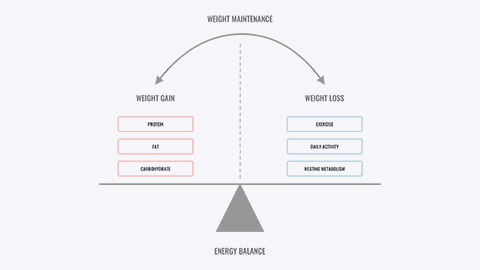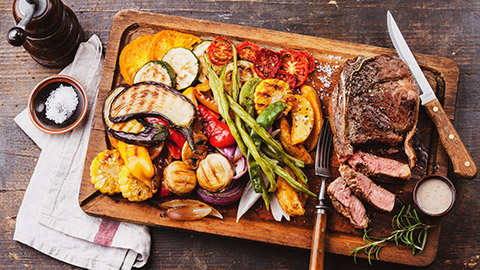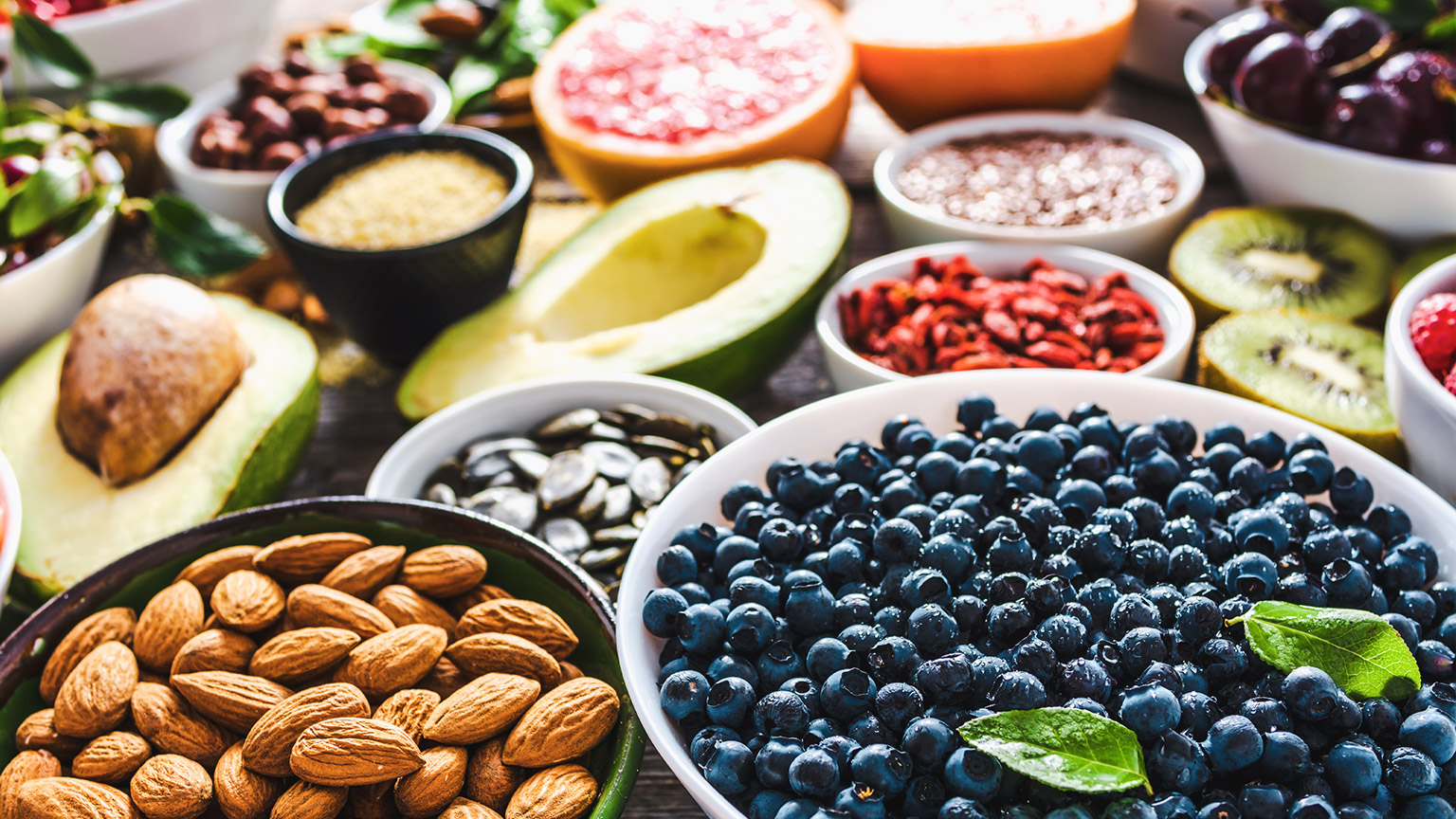In this topic, you will focus on the importance of nutrition and the fundamental energy source associated.
You will learn:
- the science behind nutrition
- energy in and energy out
- exercise and energy needs
- nutritional needs
Terminology and vocabulary reference guide
As an allied health professional, you need to be familiar with terms associated with nutrition principles and use the terms correctly (and confidently) with clients, your colleagues, and other allied health professionals. You will be introduced to many terms and definitions. Add any unfamiliar terms to your own vocabulary reference guide
Activities
There are activities throughout topic and an end of topic automated quiz. These are not part of your assessment but will provide practical experience that will help you in your work and help you prepare for your formal assessment.
Nutrition
Nutrition plays a fundamental and crucial role in our overall health and wellbeing, providing us with the essential nutrients for optimal physiological processes such as muscle contractions, digestion, eyesight, cellular signaling, just to name a few! Without adequate nutrition, the body is at risk of disease state and decreased overall functioning therefore, it is important to remember the significance of adequate food consumption and discussing this information with your client when working with them to achieve their health and fitness goals. Good nutrition assists in leading a healthy lifestyle. When good nutrition and physical activity are combined, it can help to reach and maintain a healthy weight, reduce your risk of chronic diseases, and promote your overall health and wellness.
Let’s have a look at the relationship that food has with energy and how it supports the body in achieving optimal physical performance and overall general health and wellbeing.
Energy in and energy out
The human body gains energy through sufficient food consumption; this source of energy is known as a calorie. Food calories are absorbed into the body when consumed, creating energy for the body to perform; this is known as energy in.
When the body uses the energy that was stored from the calories eaten for daily requirements such as physical activity and exercise; this is known as energy out.
If someone were more likely to exhibit more ‘in’ than ‘out’ over time, this would result in weight gain. While on the opposite, if someone exhibited more ‘out’ than ‘in’ overtime it would contribute to weight loss. However, an active individual with more 'out' than 'in' would experience fatigue during physical activity as their body does not have enough energy to sustain maximum performance. This is why it is essential to monitor and balance your energy intake and energy output.

Energy In - Considerations
- when and how frequent food and drinks are consumed.
- the amount of food and drink consumed.
- the nutritional quality of food and drink you consume.
Energy Out - Considerations
- the thermic effect of the food eaten.
- the amount of energy it takes to digest food.
- the basal metabolic rate (BMR) - the calories the body needs to simply maintain normal bodily functions.
- NEAT - Non-exercise activity thermogenesis - the amount the body moves (not exercise)
- exercise
The Calorie - The Measure of Energy in Food
What is a calorie? How many calories can I eat in a day? How do I burn off calories? These are a few of many questions commonly associated with calories. Instead of reading about it, take a short break and watch the video below to give you an understanding of what a calorie is.
Now that you have established a deeper understanding of a calorie, you will find a drop-down activity below to test your knowledge!
Exercise and Energy Needs
Exercise and energy go hand in hand and need each other to maximise the body’s optimal performance. Levels of exercise vary from individuals and this will need to be considered when adjusting their dietary requirements. For example, an elite athlete will need to factor sufficient food consumption in order to meet their high exercise needs. If too little is eaten prior, the athlete's training performance is more than likely to become obstructed and they will not be able to physically perform as they would like and this could have implications on recovery post-physical activity.
Nutritional needs
When making any nutritional recommendations, not only will you need to consider the many factors of energy in and energy out, but also the individuals’ goal(s) that they are trying to achieve. Their personalised desired outcomes will determine the types of foods they should be eating as certain types of foods can also impact on performance and recovery.
Let’s have a look below at three main aspects of desired outcomes and their impact on their nutritional needs.
Eating for Weight Loss

When recommending food to eat for weight loss, focus on the following:
- assisting your clients in staying full without eating too many calories, you should explain they will need a more protein-rich diet in order to support the satiety ( feeling full) along with muscular repair functions protein provides.
- it is important to create a calorie deficit (consuming fewer calories for the body to use, keeping in mind the balance between energy in and energy out) this can be adjusted through progress.
- avoid known danger foods such as refined flour and sugar, processed meat.
Eating for Health

Some clients may just want to improve or maintain their overall health. Healthy eating requires a well-balanced diet that includes the following essentials and nutrients:
- vitamins and minerals
- whole foods - grains, fruit, vegetables
- good oils
- reduced salt
- regulates gut health
Eating for athletic performance

Eating for optimal athletic performance requires consideration of the type and amount of exercise the individual will be doing. This may determine the amounts of food required as fuel for the body.
When addressing the nutritional needs of an athletic client focus should be on:
- your client’s need to be eating enough food to maximise their training. They will need this as they will be using this food for the energy out.
- a carbohydrate (CHO) rich diet is essential for these clients because the body uses this source of energy for maximising their performance for a longer duration.
- recommending that the food they are to eat will need to be carefully planned and prepared so they are mindfully selecting important foods to fuel their body before training and foods for recovery after training. Emphasise it will not only boost their performance and recovery but help them stick to their required nutrients to achieve their goals.
Nutrition plans and exercise programmes must be personalised to cater to every individual so that they are able to achieve best results. These will need to be monitored regularly and adjusted as their goals, physical activities and nutritional needs will change through their journey. While many people are interested in all three of these aspects of nutrition a 'one size fits all' approach to nutrition should not be taken.
It is important to have a thorough understanding of the main energy providers in food such as carbohydrates, fats and protein. This will ensure you are able to appropriately recommend the most suitable dietary requirements for each client.
In this topic, we focused on Nutrition, Energy terminology, and key terms.
You have learned:
- what nutrition is
- how energy is put in and out of the body
- the importance of exercise and energy needs
- fundamental nutritional needs
